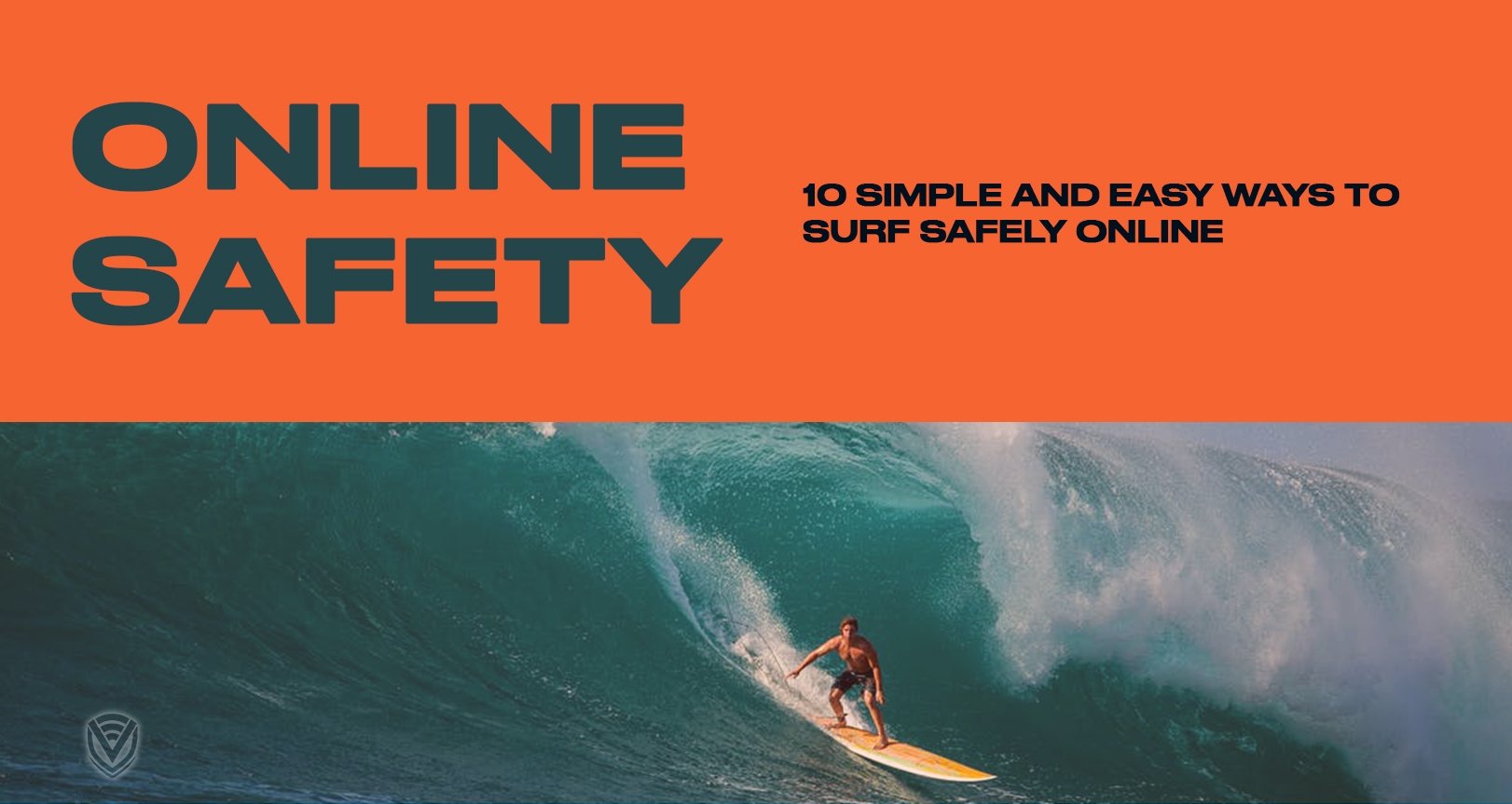
Internet has transitioned from being just a tool to being a part of our daily lives. The internet is filled with so many things and if you take some wrong turns, you might face some dire consequences.
Surfing on the internet safely is something that everyone can do. You don’t have to be tech savvy to protect yourself on the internet. In other terms, you don’t need to know martial arts to be protected on the streets. If you know where to go and how to go, you won’t face any problems.
We have come up with easy tips that you can use to improve your internet security. Any person using the internet should follow these best practices if they value their data and privacy online.
1. Make your passwords SUPER strong
If you’re using the most generic passwords like ‘12345678’ or ‘password’ then change them NOW. Don’t use this type of passwords. The best type of password should be:
- Random collection of numbers, letters and symbols
- A unique password
- More than 10 characters long
- Don’t share your password
To learn more about passwords on the internet have a quick read at how you can beat the hackers with a strong password.

2. Change your social media privacy settings
If you’re using social media accounts, then you know that they have tons of personal information about you. You will be surprised how much of it is available for users on the internet by default.
If your curious Google your name and see the results (check google images and google videos). This is why we strongly recommend you to check your privacy settings on your social accounts.
Here’s the privacy settings of Facebook.
The ultimate decision is up to you, you can show them to everyone in the internet or just your friends or nobody but yourself.
3. Don’t reuse passwords
This is a very common mistake that beginners and professionals do alike. This is a mistake that most people do. You never know when your passwords will be compromised (yes it can happen).
The problem about having the same password all across your accounts is that, when one gets compromised the others will follow (just like dominos).
Most applications ask you to change your passwords once every 6 months or a year. Not reusing passwords and changing them is one of the best internet practice.
4. Don’t store confidential data on public storages

Google docs, is not the place to store your passwords. Even though it’s linked to your Gmail account, it’s not the place to store sensitive information.
With 2 or three clicks the file can be shared with a lot of people. Don’t use the public storage devices to store your personal data like:
- Scanned copy of passport
- Scanned copy of ID
- Bank details
- Passwords and other sensitive information
The summary is that don’t use the services that was meant for sharing, as a tool for storing your private data.
5. Backup your data
You never know when disaster will hit you. So it’s always better to be safe than sorry. By backing up your data on a frequent basis will save you a lot of money and time in the long run.
6. Be cautious of suspicious emails
This one you’re going to have to go with your gut. If you get an email which seems to be too good to be true, then it probably is.
Phishing emails are designed in such a way that it is sent to you by posing as a legitimate person or company. A spyware file may also look genuine.
Sometimes there will be “security professionals” who will tell that your devices are infected with a virus and only they know how to take care of it. They will do it for a small fee or getting remote access to your computer.

This is how ransomware and other problems start to happen.
Basically if you think it’s fake, just delete the message!
7. Keep your software up-to-date
Software are not 100% fool proof. So when you get an update, it comes with a security patch solving a current vulnerability that is on the applications. This is why you get a lot of updates for your operating system.
Eventhough it’s annoying, but they are necessary. Always update your programs and operating systems. Don’t let a hacker exploit these flaws and harm you.
Also delete or deactivate any software, programs, or applications that you're not using. If it’s just there on your computer, it’s better to remove it. These are best practices to follow for small businesses.
8. Use a VPN
When connecting to the internet always use a VPN. This will encrypt your data and keep you anonymous from the internet. Another good thing about a VPN is that when you connect to a public WIFI, it keeps you safe.
When connected to an unsecure public WIFI, anyone in the same network can have access to your files and to monitor what you will be doing.

9. Use end-to-end encryption
The best modern messaging apps use end-to-end encryption which means that the message is encrypted when sent and decrypted at the receivers end.
However most messaging apps are encrypted but the data are stored on their servers. However this means that the provider has access to your messages and if their servers gets compromised, so does your messages.
By default WhatsApp works with end-to-end encryption, but most of the other applications has this feature. You will have to activate it manually.
10. Disable lock screen notifications
You worked so hard to protect your phone with an amazing unique password. So why do you keep your notifications on the lock screen?

Now anyone passing by will know what you’re up to! To keep that information from appearing on the locked screen, set up notifications correctly. Disable lock-screen notifications or hide sensitive information from your lock screen.
Was any of this helpful? Do you have anything to add to our small list? Feel free to let us know in the comments below.
Do you value your privacy online?
Use VPN Surf and surf safely and securely in the open waters of the internet.
